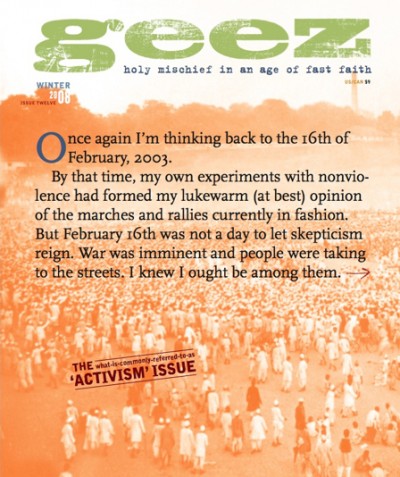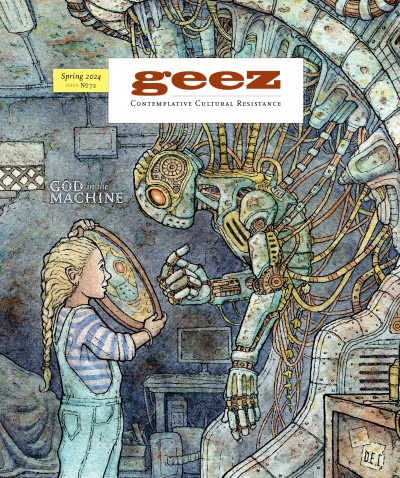Confessions of a contemporary Christian colonialist
As a white American, I am the beneficiary of at least two monumental injustices. First, the land we live on was often taken from indigenous peoples by means of broken promises and military force. Second, African men, women and children were brutally enslaved in order to provide cheap labor for many of the new landholders. As a Christian, I feel the need to make right the reality that some inestimable, but not insignificant, portion of my resources are the legacy of these injustices.
Whatever Jesus said to Zacchaeus during their serendipitous visit must have been good, because Zacchaeus, the exploitative tax collector, got excited. “Look, Lord,” he said, “half my possessions I give to the poor, and if I have defrauded anyone of anything I will pay back four times as much.” Jesus’ response was simple. “Today salvation has come to this house.”
But what if Zacchaeus had said no to Jesus? What if he kept on defrauding people until he died, and then left his wealth to his children? And then, what if Jesus had dropped in to visit Zacchaeus’ children after their father’s funeral?
Would Jesus have said: “Look, your father accumulated some of his wealth through unjust means. I told him how he and his household could be saved from this sin, but he refused to repent. But don’t you worry about all that. By inheriting unjust wealth it is cleansed of the fraud by which it was acquired. Enjoy your good fortune. Today salvation has come to this house.”
Probably not.
When ill-gotten resources fall into the hands of an innocent person, that person does not become responsible for their benefactor’s fraud or injustice. However when Christians become aware they are the beneficiaries of prior wrongdoing it certainly becomes their responsibility to do what they can to set things right.
As a white American, I am the beneficiary of at least two monumental injustices. First, the land we live on was often taken from indigenous peoples by means of broken promises and military force. Second, African men, women and children were brutally enslaved in order to provide cheap labor for many of the new landholders. As a Christian, I feel the need to make right the reality that some inestimable, but not insignificant, portion of my resources are the legacy of these injustices. I’m not overlooking the significant part of my resources that are the result of generations of hard work and thrift, nor am I seeking to grovel in disabling white guilt, instead I’m trusting that amidst the struggle with these truths Jesus will set me free. Like he did Zacchaeus.
So I’ve taken to recognizing myself as “the child of an unrepentant Zacchaeus.”
For years I sought to follow Jesus while only giving out of my abundance. Then, growing awareness of Jesus’ message about caring for the least of these led briefly to my heroic identity as a good Samaritan intervening to save the day. Now, Zacchaeus has helped me recognize that part of why I get to play good Samaritan is because my forbearers were such efficient robbers. It has been humbling to embrace this more honest identity and struggle with what it means for me.
And yet I look around my home and find I am still often unrepentant. I treat the privileges and resources I have inherited as though they were untainted by my nation’s original sins. I enjoy the endless array of cheap consumer goods produced by the victims of oppressive governments to whom we’ve outsourced slavery. I overlook unfair labor practices if they make my retirement portfolio rise. I try to walk with Jesus today while holding on to unjust privileges the past affords me.
But then I remember. I remember that Zacchaeus repented, and I remember he celebrated his salvation with Jesus. I want that too. Jesus, please, show me the way.
Josh Kaufman-Horner is co-founder of Mission Year and a professional counselor in Virginia.



Sorry, comments are closed.